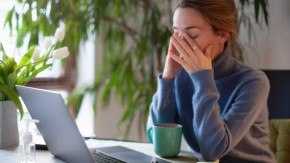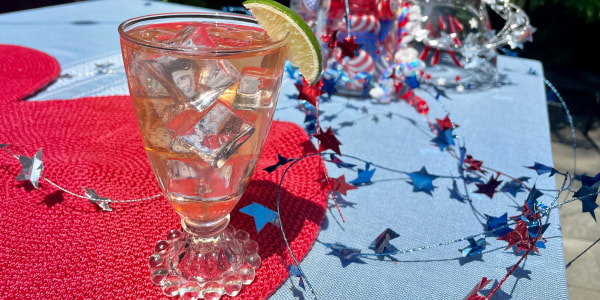Caffeine, the most commonly consumed psychoactive drug in the world, offers a range of health benefits, including reducing the risk of cardiovascular disease, certain cancers, type 2 diabetes, and Parkinson disease, according to research.
ADVERTISEMENT –SCROLL TO KEEP READING

Next time you need a pick-me-up, consider that some sources of caffeine are best limited, or avoided altogether.
Of course, coffee is the way many of us get our caffeine fix, but is this wildly popular beverage actually good for you? What about the health effects of other caffeine sources, like sodas, energy drinks, supplements, and tea?
As it turns out, not all caffeine sources are created equal, and in some cases, this substance may be harmful, or even outright dangerous—especially if consumed in excess.
From differing levels of caffeine to other unwelcome ingredients, here are the caffeine sources you should avoid, according to research.
Adverse effects of excessive caffeine
According to the FDA, safe caffeine consumption means no more than 400 mg per day. Exceeding that can result in anxiousness, insomnia, rapid heart rate, stomach upset, headache, and more. Toxic effects like seizures can occur at the consumption level of 1,200 mg of caffeine.
“The risk of caffeine overdose increases as the concentration of caffeine in the product increases, meaning even small dosages of a highly concentrated product could lead to dangerous effects,” the FDA writes. “Just 1 teaspoon of pure powdered caffeine can contain[s] the same amount of caffeine as 28 cups of coffee, and a half cup of a liquid highly concentrated caffeine product contains the equivalent of more than 20 cups of coffee. These are toxic amounts that can have serious health consequences, including death.”
Soda
Many sodas contain caffeine, with an average 12-oz can boasting about 40 mg, or a little less than half the amount found in the average cup of coffee (95 mg of caffeine). Some sodas, like Mountain Dew, feature a higher level of caffeine, with a 12-oz can containing 55 mg.
ADVERTISEMENT –SCROLL TO KEEP READING
While you’re probably not at risk of consuming too much caffeine when you drink your favorite soda, its caffeine-fueled benefits are overshadowed by the heaps of sugar in these beverages, which can cause serious health harm.
According to a review published in the European Archives of Paediatric Dentistry, an average 12-oz can of soda contains 40 g of sugar, the equivalent of 10 teaspoons. Because of the sugar and acid content in soda, excessive intake can lead to obesity, dental issues, and increased risks of type 2 diabetes, the authors note.
That makes soda one of the least healthy ways to get your caffeine. Moreover, artificial sweeteners in diet sodas bring their own set of problems. Read These healthier drinks may do more harm than good at MDLinx.
Energy drinks
Most American adults are well within the FDA’s safe caffeine consumption range, given that the average daily caffeine intake in the United States is 135 mg, according to Harvard School of Public Health.
But energy drinks have very high amounts of caffeine—a standard energy drink comes in a 16-oz can and features 170 mg. Those that come in concentrated 2-oz “shot” form usually feature about 200 mg of caffeine. Some energy drinks may have even more caffeine than that. According to a review published in Frontiers in Psychiatry, caffeine content isn’t always listed on a product’s packaging, and some of these drinks can exceed 500 mg of caffeine (the equivalent to 5 cups of coffee).
ADVERTISEMENT –SCROLL TO KEEP READING
This is well above the FDA’s recommended daily intake limit and is high enough to be potentially toxic in children and young adults. As mentioned above, consumption of more than 400 mg of caffeine can result in a number of adverse side effects, including nervousness, anxiety, and increased heart rate. Those who have underlying anxiety disorders are particularly at risk of experiencing these symptoms.
Consuming too much caffeine can also temporarily raise blood pressure, which could prove risky for those with hypertension. However, there is no evidence to suggest that caffeine consumption leads to long-term issues like hypertension onset or atrial fibrillation.
Kombucha
Kombucha is widely regarded as a health food, and more kombucha products are appearing on shelves all the time. While there’s little evidence that drinking kombucha is bad for you, there’s an equal paucity of evidence to suggest that kombucha offers the health benefits that so many posit.
This was pointed out in a review published in the Annals of Epidemiology. The authors note that kombucha is not considered harmful at an intake of 4 oz a day, but a literature search unearthed no controlled studies of kombucha that involved human subjects. In addition, the authors cite a number of reports of adverse health outcomes in which kombucha has been implicated. These include hyponatremia, lactic acidosis, toxic hepatitis, and various other cases.
While it seems unlikely that drinking moderate amounts of kombucha will negatively impact your health, there’s no evidence to support the claims made about the beverage either. Until further studies are conducted on kombucha, consider sticking with research-backed caffeinated drinks like tea.
ADVERTISEMENT –SCROLL TO KEEP READING
Pills and supplements
Consuming caffeine in pill or powder form is, by far, the easiest way to consume too much of it. Caffeine supplements contain about 200 mg per pill (about the equivalent of 2 cups of coffee). And just 1 teaspoon of caffeine powder can contain as much as 2.8 g of caffeine (the equivalent of 28 cups of coffee), which can cause serious health problems and even death, according to the Mayo Clinic.
This is backed up by the Harvard School of Public Health, which notes that caffeine toxicity can occur with as little as 1.2 g in one dose. Consuming 10-14 g of caffeine could even be fatal.
It’s worth bearing in mind that caffeine isn’t just found in food, but features in various medications including standard painkillers and cold/flu medicines. This means you may already have caffeine in your system without being aware of it. Learn more about caffeine’s potential reactions with medications and even vitamins at MDLinx.
The healthier options: coffee and tea
Which is best for health, coffee or tea? Let’s look at the research and health expert advice.
Considering that a regular cup of brewed coffee (or roughly 8 oz) contains about 95 mg of caffeine, that means you can drink 4 cups before you’re bumping up against the FDA’s recommended daily limit. On the other hand, 1 shot of espresso contains about 65 mg of caffeine, which means you’re unlikely to consume too much through drinking espresso alone. Current research links coffee consumption with lowered risks of liver and endometrial cancers.
One cup of black tea contains 47 mg of caffeine, and green tea contains even less, at 28 mg per cup. Beyond that, tea boasts various health benefits, according to a review published in Current Pharmaceutical Design.
ADVERTISEMENT –SCROLL TO KEEP READING
Numerous studies cited in the review have found that the consumption of tea is associated with reduced risks of various types of cancers, including skin cancer and lung cancer. Evidence suggests that drinking tea also offers a boost to cardiovascular and metabolic health, as well as a reduced risk of diabetes.
Bottom line: When it comes to caffeine consumption, coffee or tea (without any added sugars or cream) are among the healthier options. Ready to learn more? Check out Coffee: How to maximize health benefits and minimize harms on MDLinx.
And finally, there are other nutritional sources besides caffeine to give you an energy boost. Read more here.

